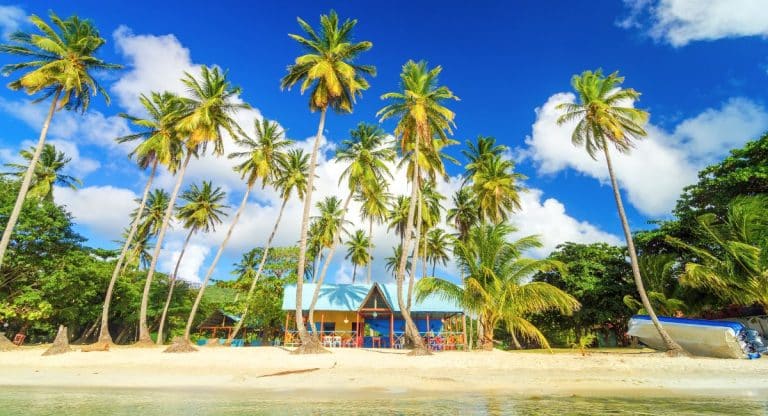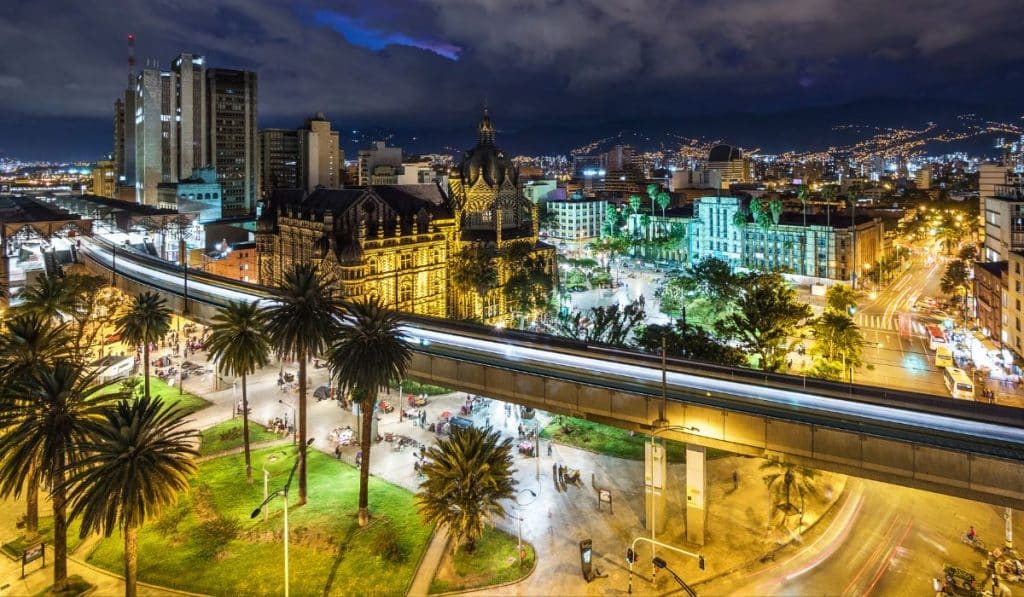Colombia is no longer the narco country frequently portrayed on international streaming services.
Terrorism and guerrillas are mostly gone, and locals and foreigners have been able to start thousands of extremely successful tourism businesses across the country.
With a growing economy and skyrocketing tourism, most visits are trouble-free.
However, not everything is good news. Colombia is still under “Travel Alert Level 3”. This means visitors should carefully “reconsider travel,” or have a security plan ready.
Parts of the Colombian jungle and borders connecting Venezuela are still very dangerous to visit. Most Colombians will tell you there is no rational reason to go there. Then, don’t go.
Stick to popular metropolitan cities and Caribbean and Atlantic beaches, and follow the next recommendations to ensure a safe visit to the “Third Most Beautiful Country in the World!,” according to Forbes.
LATEST NEWS from Colombia:
February – The U.S. Embassy in Colombia emits “Security Alert” Due to Ongoing Crime in the Country.
Back in February, the U.S. Embassy in Colombia had to release a “Security Alert” due to concerns regarding armed robberies targeting tourist venues, especially in Bogota, the country’s capital.
The agency also reminded Americans that terrorist groups can carry out attacks at markets, shopping malls, police and military local and international facilities, hotels and airports with little to no notice.
The U.S. government, however, acknowledges that such criminal groups do not specifically target Americans as they do in other countries.
Read our section “Safety Tips for Colombia” to learn what actions to take if get caught in a dangerous situation.
January Security Alert – Dangerous Dating Tourist Trap to Be Aware of
8 fatal incidents in 2 months prompted the U.S. Embassy to caution Americans, especially men, about the dangers of using dating apps in the country, particularly in Medellin, Bogota, and Cartagena.
Scopolamine, also known as the devil’s breath, is the drug that beautiful criminal women use to control their victims. Unable to think for themselves, victims hand in all their valuables and reveal their bank passwords and PINs. Not always but in some cases, they also die.
Crime Statistics in Colombia
Macrotrends has revealed some of the most eye-opening crime rates and murder and homicide statistics of Colombia.
The platform clarifies the difference between homicides committed due to domestic and interpersonal violence, murders perpetrated due to land and resource control, and homicides committed by large criminal organizations. The latter, it says, is usually excluded.
Crime statistics
- In 2021, crime rate reached 27.48%, a 13.37% rise over 2020.
- In 2020, crime rate reached 24.24, a 5.87% decrease over 2019.
- In 2019, crime rate reached 25.75, a 1.82% decrease over 2018.
- In 2018, crime rate reached 26.23, a 3.13% rise over 2017.
Murder and homicide statistics
- In 2021, murder-homicide rate reached 27.48, a 13.37% rise over 2020.
- In 2020, murder-homicide rate reached 24.24, a 5.87% decrease over 2019.
- In 2019, murder-homicide rate reached 25.75, a 1.82% decrease over 2018.
- In 2018, murder-homicide rate reached 26.23, a 3.13% rise over 2017.
As of 2024, Colombia has one of the highest criminality scores with 72.81 points.
Areas to Avoid
International governmental agencies are clear. Do Not travel to these Colombian regions if you want to avoid getting kidnapped and even murdered by the remaining criminal groups still operating in the territory.
These areas include:
- Arauca, Cauca, Puerto Carreño and Norte de Santander Departments (except for its capital Cúcuta)
These territories are plagued by violence, armed attacks, homicide and drug trafficking.
- Colombia – Venezuela Border
The Colombia and Venezuela border is another hotspot travelers, especially Americans, should avoid at all times.
Inadvertently crossing the Venezuela border can get you into serious legal trouble. In the past, international visitors have seen themselves charged with terrorism and other awful allegations. In this case, local and international governments can do little to help you.
- For its part, the U.K. Foreign, Commonwealth and Development Office urges travelers to avoid all visits to Chocó Department, except for Quibdó, Sanquianga and Telembi in Nariño, Urabá and Bajo Cauca in Antioquia and the southern side of Bolívar.
Official Travel Advisories
U.S. Travel Advisory
The U.S. State Department urges citizens to “Reconsider Travel” to Colombia as it is currently under travel alert level 3.
When issuing such an alert, the government means their citizens’ safety is compromised and “conditions” can change with little to no warning.
The agency is particularly concerned about extortion, kidnapping, homicide and terrorist attacks targeting local, tourist, and governmental venues.
Canada Travel Advisory
The Canadian government says violent armed robberies can happen in public transport, restaurants and shopping malls in Colombia.
Kidnapping for ransom and petty crimes such as pickpocketing and purse and electronic device snatching are also quite common.
This government also reminds all travelers, not only Canadians, that there is an ongoing curfew targeting minors. Those under 18 years old are not permitted to wander alone between 7:00 pm and 5:00 am. They must be accompanied by legal tutors.
This restriction only applies to el Poblado, el corredor vial de la 33, La Plaza de Botero and La Veracruz church in Medellin.
Safety Tips for Colombia
Ensuring a safe trip to Colombia requires incorporating personal security practices when enjoying your holidays. Take these recommended actions for a risk-free visit.
- Avoid wearing expensive jewelry.
- Be careful when using smartphones, cameras and other electronic devices on the street.
- Don’t carry high amounts of cash.
- Only use ATMs located inside banks and shopping centers.
- Never leave your beverages unattended. Drugging and robbing tourists is a common practice.
- Don’t share sensitive information with strangers, especially with Tinder dates.
- For the time being, avoid using dating apps such as Tinder until they are safe again.
- Don’t wander alone in remote or isolated areas, especially after dark.
- Don’t visit regions deemed as “Do not travel” areas. (Check our section, “Areas to Avoid”)
- In case of an emergency, call the police at 123.


